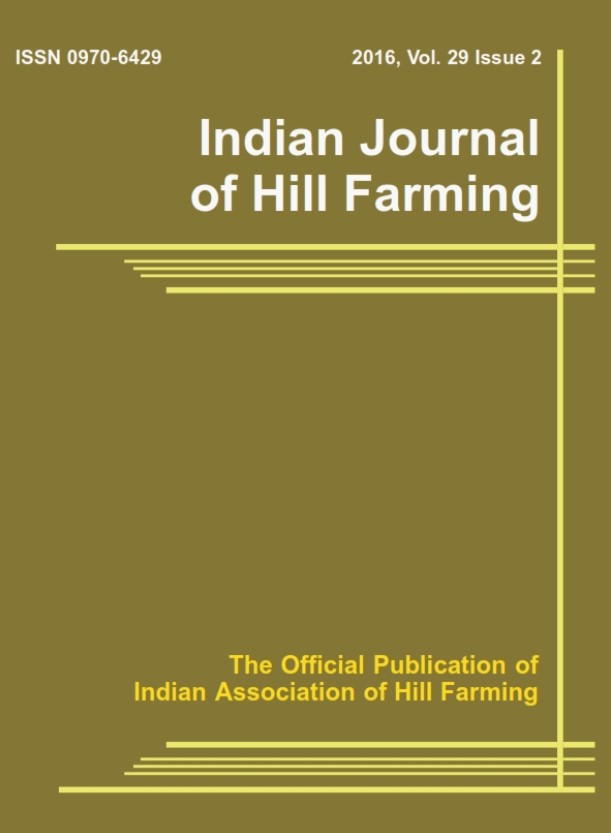Performance assessment of horticulture scheme under the Jhumia Rehabilitation Programme in Tripura
DOI:
https://doi.org/10.56678/iahf-2025.38.01.5Keywords:
People, Jhuming, Rehabilitation, Living conditions, and Economic issuesAbstract
Shifting cultivation (jhuming) is a predominant form of agriculture practice in the state, mainly cultivated by the indigenous tribes of Tripura. The impacts on the life and livelihood of the people and the harmful effects on the environment led the state government to rethink its policy toward jhumia’s development. Since the 1950s, the state government has taken various rehabilitation schemes to wean away the jhumias from practising jhum cultivation; such schemes were colony housing, plain land agriculture, animal husbandry, plantation and horticultural crops. The study finds that various government agencies work in corporations to rehabilitate the households, such that the horti-croppers’ livelihood opportunities and the possessions of household assets have improved positively. Besides, marketing problems were relatively minor to the growers. Also, they have adopted precise strategies to counter various threats experienced during plantation development and after that. From the business turnover, cultivating horticulture crops could be considered viable. The schemes provided were also rated excellent, indicating a positive change in jhumias economic development.
Downloads
Published
Issue
Section
License

This work is licensed under a Creative Commons Attribution-NonCommercial-NoDerivatives 4.0 International License.




